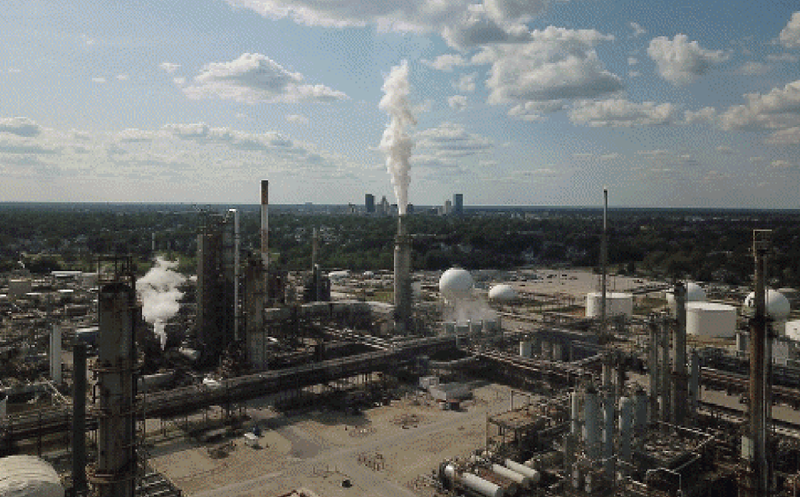
US President Joe Biden and European Commission president Ursula von der Leyen on March 25 announced a joint Task Force to reduce Europe’s dependence on Russian hydrocarbons and “strengthen European energy security as President Putin wages his war of choice against Ukraine.” The press release states: “The United States will work with international partners and strive to ensure additional LNG volumes for the EU market of at least 15 bcm [billion cubic meters] in 2022, with expected increases going forward.” This means liquified natural gas from the US fracking industry.
The press release did add: “The United States and the European Commission will undertake efforts to reduce the greenhouse gas intensity of all new LNG infrastructure and associated pipelines, including through using clean energy to power onsite operations, reducing methane leakage, and building clean and renewable hydrogen-ready infrastructure.”
But environmentalist critics were not appeased. Murray Worthy, gas campaign leader at Global Witness, responded: “Today’s agreement puts the EU and the US on a misguided and dangerous path by fast-tracking new infrastructure to import fossil gas into Europe. Europe already has enough capacity to import the amount of gas the US intends to supply, and building new import terminals would mean locking in fossil gas imports for years to come, long after the EU needs to quit this climate-wrecking fuel for good… If Europe truly wants to get off Russian gas the only real option it has is phasing out gas altogether.” (DW)
Over the weekend, hundreds were arrested in England as the activist group Just Stop Oil disrupted petrol supplies from seven critical facilities near London and Birmingham to press their demand that the United Kingdom call a halt to new oil and gas projects. In a statement, Just Stop Oil said it is “calling on the UK government to get a grip and implement an emergency programme to reduce our reliance on oil and gas through insulation, renewables and free public transport.” (Jurist)
World oil prices have surged to $100 a barrel in the wake of Russia’s invasion of Ukraine.
Image: FracTracker





Norwegian activists block tanker delivering Russian oil
Norwegian police on April 25 arrested 20 activists from the groups Greenpeace and Extinction Rebellion near Asgardstrand for blocking a tanker from delivering Russian oil to an Exxon Mobil terminal. Activists set off in kayaks across the Oslo Fjord and attempted to block the tanker Ust Luga from delivering an estimated 95,000 tons of Russian oil to Norway by chaining themselves to the vessel’s anchor. (Jurist, RFE/RL)
Biden opens public land to drilling
Facing immense political pressure to address surging energy prices in the wake of Russia’s invasion of Ukraine, the Biden administration in April began the process of selling leases for new oil and gas drilling on public lands, a move that will likely increase the nation’s already rising greenhouse gas emissions.
This marks the first time the administration has decided to sell onshore oil and gas leases on federal land, after having initially announced a “pause” on such activities. (Inside Climate News)